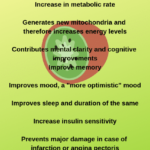Its shape and taste make it unmistakable, but the qualities and advantages it brings to a person who consumes it are more unknown. The kiwi is much more than the green fruit with the skin full of “hairs”. It is a source of protein and, in addition, exerts a rejuvenating effect on the face.
Many experts advise taking it in the morning at breakfast. Eating this fruit allows you to keep the cells younger , as well as strengthen the immune system or prevent allergies and colds.
Below is a list of advantages brought by the kiwi, a food rich in antioxidants and vitamin C kiwifruit contains about as much vitamin C as an orange.
Table of Contents
Filter the sun’s rays
For those who are sensitive to UV rays – those most likely to burn when they go to the beach on the first day, even with protection 50 – do not hesitate to eat kiwi. The lutein it contains exerts a natural protective filter function for the skin.
Guard against nonalcoholic fatty liver disease
A natural antioxidant Pyrroloquinoline quinone or PQQ found in kiwi may guard against the most common liver disease. A study was done using obese pregnant mice the result showed that the antioxidant PQQ protected the adult mice and their offspring from fatty liver.
Raw Kiwi may be better for your mental health
Research has shown that eating raw fruits and vegetables can maintain healthy mental health. Ten fruits were listed from the research and kiwi was one you can read more on the research.
Provides Vitamin C and PQQ for lactating mothers
Kiwi is high in vitamin C and the antioxidant Pyrroloquinoline quinone which is found in breast milk. Vitamin C contributes to the growth and repair of tissues, which makes it an essential element for the proper development of nursing babies. This vitamin is especially important for the development of bones and teeth and for the creation of collagen, an essential protein found in various organs of the body that helps to heal wounds. Vitamin C also increases the ability of the immune system to fight diseases, thus protecting your baby against multiple diseases and infections. Thanks to being a vitamin soluble in water, vitamin C is transmitted through breast milk. Therefore, your daily intake has a direct effect on your baby.
It favors the immune system and fights anemia
That is, it prevents colds and raises defenses, thanks to a large amount of folic acid and vitamin C. Both nutrients produce more red and white blood cells, as well as antibodies, which function as a barrier to diseases caused by viruses. It also increases the absorption of iron from what is consumed, which accelerates the recovery of patients with anemia.
It helps digestion
It is a fruit full of soluble fiber, therefore it helps in digestion and improves intestinal transit; It is a great ally against constipation. If it is consumed at breakfast, it will help much more in this aspect.
It serves to lose weight and does not retain liquids
It contains a large percentage of water and an intermediate caloric level, which allows you to lose weight and feel more satisfied. It is perfect for slimming diets – it is diuretic – and to lose water, especially in the case of pregnant women.
Improves the circulation of blood and bones
The kiwi fluidizes the blood, improving the state of the arteries and preventing the formation of thrombi or clots in the blood vessels. It also allows reducing blood cholesterol levels. In addition, this fruit can improve the development of bones and the functioning of nerves, muscles, and organs.
Reduces stress and nerves
Again, due to the large amount of vitamin C, the kiwi can avoid nervousness and anxiety, being perfect also to reduce stress.
Benefits for the skin
It provides an interesting advantage for the health of the dermis. One of the main cosmetic uses that is given to this food is its rejuvenating effect. It also promotes cellular regeneration, making it ideal for combating acne, scars, wrinkles or facial blemishes. It is also optimal for the health of the hair and hydrates it deeply without weighing it down.
Who should not eat kiwi?
Those who are allergic to an enzyme called proteolytic actidin should not consume kiwi, papaya or pineapple. Nor those who have a tendency to develop kidney stones (kidney stones). Due to its potassium content, it is not recommended for those suffering from kidney failure. Symptoms of poisoning can lead to hives, swallowing problems and vomiting.



